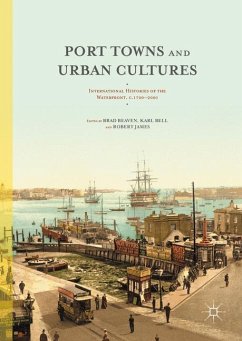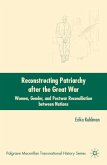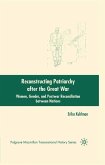Despite the port's prominence in maritime history, its cultural significance has long been neglected in favour of its role within economic and imperial networks. Defined by their intersection of maritime and urban space, port towns were sites of complex cultural exchanges. This book, the product of international scholarship, offers innovative and challenging perspectives on the cultural histories of ports, ranging from eighteenth-century Africa to twentieth-century Australasia and Europe. The essays in this important collection explore two key themes; the nature and character of 'sailortown' culture and port-town life, and the representations of port towns that were forged both within and beyond urban-maritime communities. The book's exploration of port town identities and cultures, and its use of a rich array of methodological approaches and cultural artefacts, will make it of great interest to both urban and maritime historians. It also represents a major contribution to the emerging, interdisciplinary field of coastal studies.
"This is a rich collection of essays that deserves to be consulted by a wide public. Many new questions have been posed by the authors and many new lines of inquiry have been suggested." (Patrick O'Flanagan, Journal of Social History, Vol. 52 (4), 2019)
"This book focuses on two core themes: the nature of urban maritime cultures; and representations of port towns. ... Scholars from a wide range of disciplines, from maritime and port studies to architecture, geography and ethnography, make this rich collection of essays a valued contribution to interdisciplinary port and maritime studies. ... This collection of studies is highly recommended ... and is an important contribution to port and maritime studies." (Paul Th. Van de Laar, International Journal of Maritime History, Vol. 29 (4), November, 2017)
"Book makes a compelling case for study of the port that refigures its peripheral, othered status, and instead shows that port towns have much to offer not only the field of maritime studies, but also historians, geographers, literary and cultural scholars with an interest in histories of social identity, cultural formation and exchange and urban representation. ... The chapters contribute to assessments of maritime identity, coastal cultures, and sea representations ... will be instructive to scholars working on these themes." (Charlotte Mathieson, The Mariner's Mirror, Vol. 103 (3), August, 2017)
"In Port Towns and Urban Cultures the editors' aim, through the exploration of a series of ports from around the globe, is to advance the reader's understanding of how each port was a crucible for the forging of distinctive urban and maritime identities. ... This book most certainly contributes to urban-maritime history. Moreover, it is a good read." (Jacob Bart Hak, The Northern Mariner, Le marin du nord, XXVI (4), October, 2016)
"This book focuses on two core themes: the nature of urban maritime cultures; and representations of port towns. ... Scholars from a wide range of disciplines, from maritime and port studies to architecture, geography and ethnography, make this rich collection of essays a valued contribution to interdisciplinary port and maritime studies. ... This collection of studies is highly recommended ... and is an important contribution to port and maritime studies." (Paul Th. Van de Laar, International Journal of Maritime History, Vol. 29 (4), November, 2017)
"Book makes a compelling case for study of the port that refigures its peripheral, othered status, and instead shows that port towns have much to offer not only the field of maritime studies, but also historians, geographers, literary and cultural scholars with an interest in histories of social identity, cultural formation and exchange and urban representation. ... The chapters contribute to assessments of maritime identity, coastal cultures, and sea representations ... will be instructive to scholars working on these themes." (Charlotte Mathieson, The Mariner's Mirror, Vol. 103 (3), August, 2017)
"In Port Towns and Urban Cultures the editors' aim, through the exploration of a series of ports from around the globe, is to advance the reader's understanding of how each port was a crucible for the forging of distinctive urban and maritime identities. ... This book most certainly contributes to urban-maritime history. Moreover, it is a good read." (Jacob Bart Hak, The Northern Mariner, Le marin du nord, XXVI (4), October, 2016)









